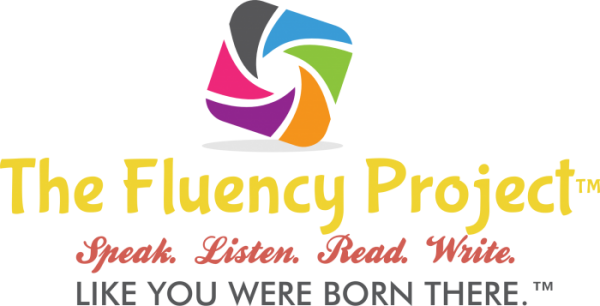by Dr. Monroe Mann, PhD, Esq, MBA, LLM, ME, EMT
Founder & Executive Director, Break Diving, Inc. & the Fluency Project
What is the Fluency Book?
FACT: In any language, there are certain words that any reasonably educated person will know. These are not words of a ‘specialist’–these are the words that you probably already know in your native language, and that you need to learn in your foreign language if you want to become truly fluent.
Ironically, most people who are having difficulty achieving ‘native fluency’ despite their best efforts are usually those who neglect to realize that the number one culprit is usually a terribly poor vocabulary that is missing many key words.
For example, let’s assume you already have a good base in a foreign language. Well, if you have trouble understanding the radio and tv, it’s probably your lack of vocabulary. If you have trouble reading books, magazines, and newspapers, guess what: it’s probably also your vocabulary. If you have no problem talking one on one with a native speaker, but then have great difficulty keeping up with a conversation between two native speakers, then… it’s quite probably your vocabulary. And if you have difficulty expressing yourself quickly and efficiently, either orally or in writing, yes, it’s probably your vocabulary too.
Okay, sure, it may not be JUST your vocabulary. Sometimes they speak too fast. Sometimes they mumble and don’t speak clearly. Maybe your grammar isn’t as good as you think it is. Maybe you haven’t exposed yourself enough to the language. It doesn’t matter: the point is, if your vocabulary is deficient, your brain will NEVER be able to also handle fast and mumbling speakers and your mastery of grammar will be meaningless. \
But… the more you improve your vocabulary, the easier EVERYTHING becomes: speaking, reading, writing, and listening.
Our purpose at the Fluency Project is to get you as much practice as you can in all four of those above disciplines. Part of our method of doing so is what we call The Fluency Book.
In a nutshell, we hope to point out all of the words you need to know to become truly fluent, and in so doing, help you test what you know and clue you in to what you don’t! Hint: you don’t know as much as you think you do.
Now, to those of you naysayers who think what we are doing has already been done, i.e. dictionairies and word references, we beg to differ. You see, a comprehensive dictionary has many words that you will likely never use, hear, read, or write, so there’s no reason to study them. On the other hand, a typical student’s vocabulary book simply doesn’t go into the depth necessary on each topics to truly master a subject at the level of a typical native speaker. For example, I have yet to see a vocabulary book that encourages me to learn all the countries of the world; the major rivers; the different types of insects; the word for three-hole punch; the word for daisies, oak trees, and poison ivy; the word for Chinese dumplings and the Egyptian pyramids; the word for heart attack, leukemia, chemotherapy, and blood transfusion; and the list goes on. And yet, in your native language, you know most of these words, if not all of them, right? And a dictionary has all these words, yes, but they are spread out alphabetically with no clear study plan.
Until now.
Each of our Fluency Book posts here on the Break Diving website goes into much more depth than a traditional list in a vocabulary book, but doesn’t include words you are not likely to see or hear as a ‘typical fluent speaker’.
So without further ado, go find all of the Fluency Book posts on our site and… get to work! 😀
NOTE: If you are studying English, look up the words and write the definitions in English or in your native tongue. If you are studying a language other than English, simply write the translations in the language you are studying. Remember: they are many more of these Fluency Book lists here on our website, and many more to come. Print out and study them all and you’ll make great strides towards true fluency. If you think we are missing any categories or words, let us know: we’re always grateful for contributions from volunteers.
Break Diving, Inc. is a tax-exempt 501(c)(3) charitable organization.
Read all about our amazing mission at www.BreakDiving.org
Join our free community at www.breakdiving.io
Like what we do? Please make a feel-good donation!
Remember to tell your friends about this www.BreakDiving.blog


5 Replies to “What is the Fluency Book?”